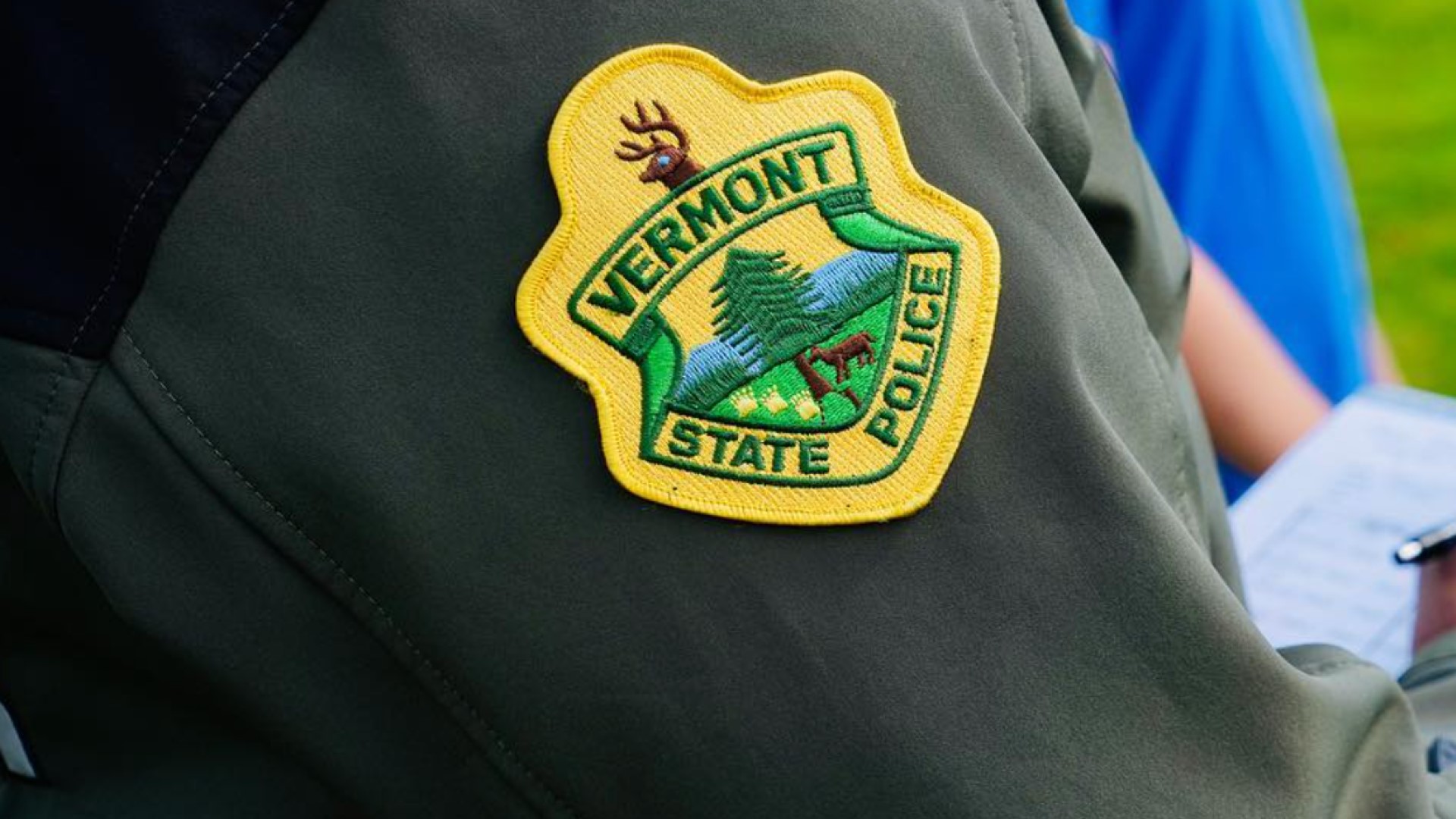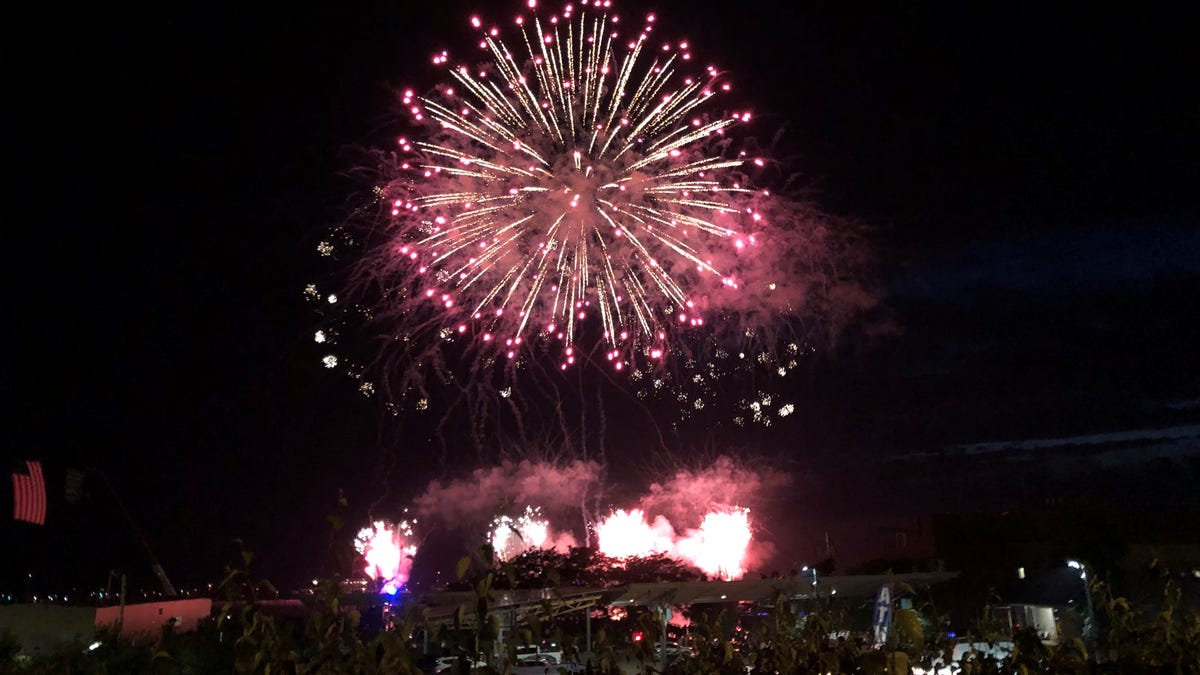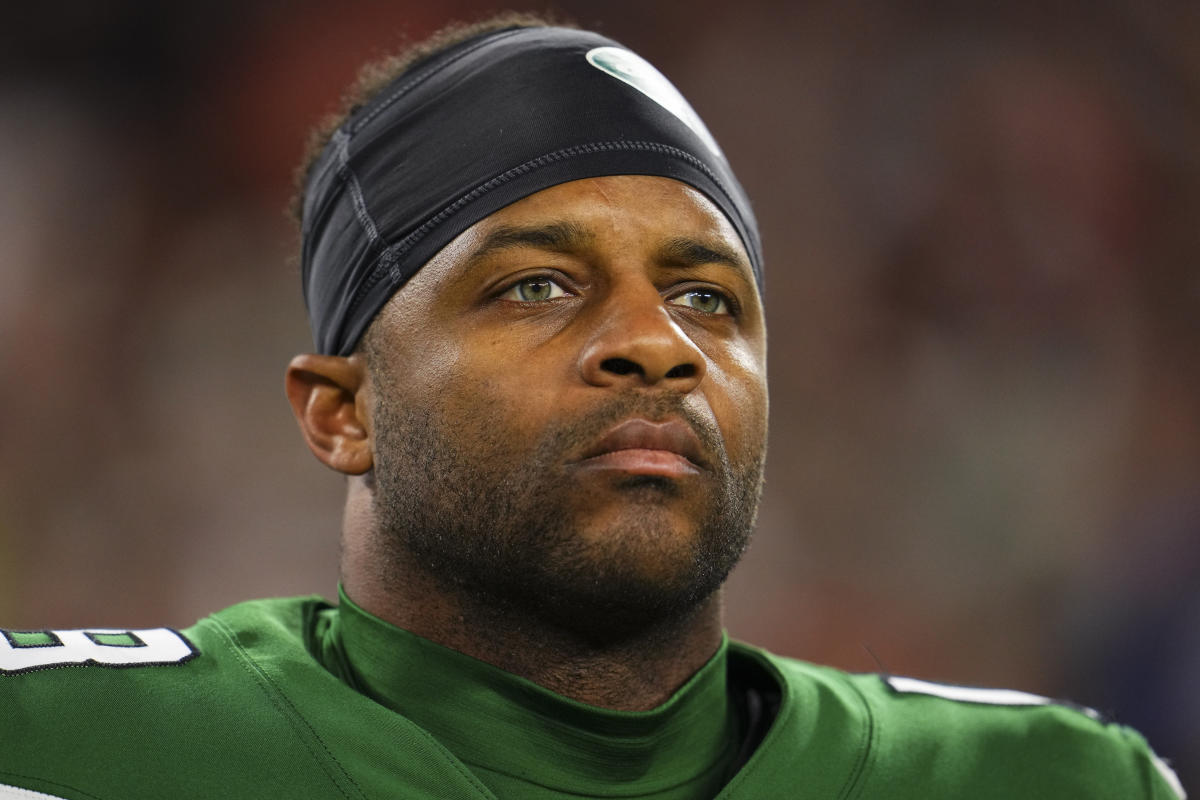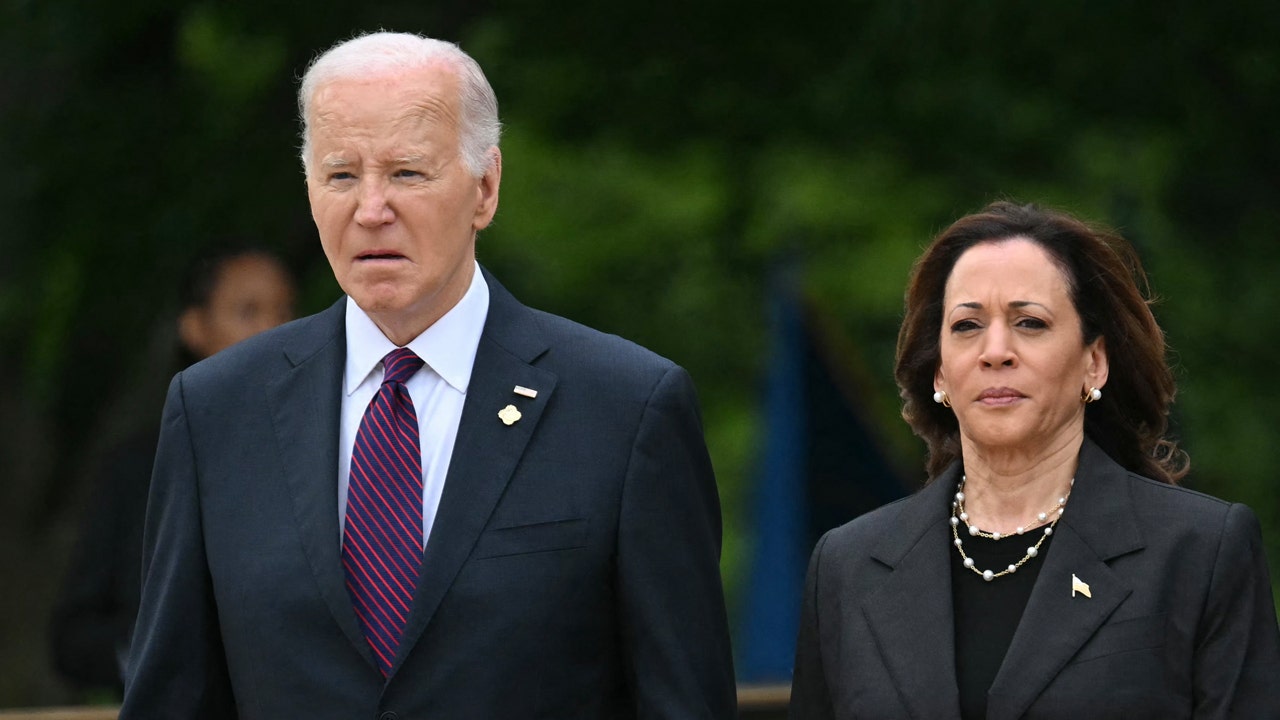Vermont
WCAX Exclusive: Inside the program changing Vermont’s approach to policing – Pt. 2
/cloudfront-us-east-1.images.arcpublishing.com/gray/QZLWLYHA7FE3XDGPRVYOQU6O2A.jpg)
WILLISTON, Vt. (WCAX) – Former President Barack Obama helped coin the phrase “21st-century policing.” It’s an effort to identify best policing practices by building public trust and finding alternatives to use-of-force. In Vermont, it has included a million-dollar effort to embed mental health workers with police. In part 2 of her special report, Christina Guessferd looks at whether the renewed focus on mental health support is actually saving lives.
“It’s inherent in a police officer’s nature that we want to keep people safe. We want to protect people — even sometimes from themselves — but we’re bound by policy and law on how we act and react,” said Vermont State Police Sgt. Todd Wilkins.
“When you start talking about people’s mental health, their personal rights, and the safety of the world around them, it’s a complex conversation,” said Bill Elwell, a crisis specialist stationed at the Shaftsbury barracks.
That complex conversation in Vermont started several years ago but got much louder in 2020. That January, the Department of Public Safety under former Commissioner Mike Schirling’s leadership, submitted suggestions for modernizing policing methods.
Then in May, the murder of George Floyd triggered community outrage and a push to defund local police departments. By September, Governor Phil Scott issued an executive order accelerating a series of policing reforms. The following May, the Legislature enacted Act 27, amending the standards for law enforcement use of force. And from that executive order and law, a new statewide police use of force policy was born in October 2021, a seismic paradigm shift for Vermont law enforcement.
“‘Do no harm’ has become really everybody’s goal,” said Vt. Public Safety Commissioner Jennifer Morrison. “The ability to resolve situations humanely, compassionately, and without force becomes as important as how well you put bullets on the target down range or how many cases you close or tickets you write.”
Morrison acknowledges the volume of violence between law enforcement and mentally impaired people is under a microscope across the country. “The underlying issue was a mental health crisis, but it resulted in a use of force or injury or death to people involved in it — frequently the person experiencing the mental health crisis. And we didn’t want to see that happen in Vermont. We know it has happened in the past, but we were recognizing the frequency of the incidents and needed to better equip our officers to handle those situations, inevitable situations,” she said.
A public data dashboard on the Vermont State Police website tracks these inevitable situations. Over a five-year period from 2018 to 2022, the number of mental health-related use of force incidents dipped from 90 to 59. The greatest decline — in 2022 — was down 15% from the year before. That’s when embedded crisis specialists worked in all but one barracks.
“It is just a fact that responding with force when somebody is approaching with force is always going to be a reality of police work,” Morrison said. “Police officers were being asked to be social workers, mental health crisis clinicians, and peacekeepers, and we needed to give them more tools, it became clear.”
Tools explicitly described in the statewide use of force policy — “crisis teams or embedded social workers.” A subsection specifically dictates troopers are required to prioritize de-escalation strategies and avoid the use of force during interactions with mentally impaired persons.
“Time can almost always work in your favor,” Morrison said. “It’s the transactional nature that has changed. As opposed to valuing our time and an expedient, quick resolution to a sticky situation, we are now valuing the outcome, not the process by which we got there.”
“Slow down and create space.” During a role-playing scenario, Sgt. Wilkins and Bill Elwell demonstrate that mantra. The idea is, if the scene is safe, the clinician takes over while the trooper steps back. Meanwhile, by pairing them together, the trooper is constantly exposed to de-escalation tactics in practice.
“It’s not only just a partnership, but it’s an educational partnership,” said Mourning Fox, who took over as DPS’ first-ever mental health programs director in 2021. He says it’s a philosophy now woven into every lesson for all recruits at the Vermont Police Academy, showing them how to identify when a person’s behavior is driven by mental impairment.
Fox, who teaches that course, stresses that those symptoms don’t necessarily mean someone has a mental illness. “Almost any interaction with law enforcement is, at minimum, anxiety-provoking,” he said. The cornerstone of the concept is effective communication to foster calm cooperation and a productive discussion. “When the mind is extremely elevated, our ability to be rational is opposite. I think of it like the scales of justice. When our emotions are up here, our ability to be rational is down here.”
Reporter Christina Guessferd: Do you think now, de-escalation is considered as essential a skill as weapons training?
Mourning Fox: I think it’s getting closer… How we use our minds, our mouths, our ears, it’s a perishable skill just like it is how we use our sidearm or the OC spray or handcuffs.
Morrison says what had been a three-hour lesson is now core to the entire academy’s curriculum. “It needs to be front of mind that this is a skillset and they can master it,” she said. “That’s where I want to see this go in the next five years, is to just become a thread that runs throughout everything, from the time our officers are in the academy until they are out on the road performing their duties.”
/cloudfront-us-east-1.images.arcpublishing.com/gray/2HU4XYD3FBHMXMMAM7TOOV542U.jpg)
And the troopers and crisis specialists — like Wilkins and Elwell — who are witnessing the changes, say it’s just the beginning.
“Being in this job for such a long time, I’ve seen the system fail a lot. And now, I’m seeing the system not fail,” Sgt Wilkins said.
“These aren’t just problems to be solved or cases to be closed. We’re dealing with human beings in the midst of life,” Elwell said.
“This shows that we care about them as individuals, that we’re not just there to arrest them, we’re not just there to remove them from situations. We’re there to try to provide them with resources, things that can truly help them get better,” added Wilkins.
Fox says anecdotal community feedback about the program has been completely positive and that a growing number of local police departments are exploring now ways to adopt the same approach. He says he’s confident data he’ll receive and evaluate by the end of summer will solidify evidence of the program’s success.
For the first full year of the program, every county’s designated mental health agency has been tracking the number of people in crisis who visit the emergency room. If fewer are filling ER beds waiting for psychiatric care, Fox says he can conclude more incidents are being resolved peacefully in the field.
Related Stories:
WCAX Exclusive: Inside the program changing Vermont’s approach to policing
Report outlines mental health gaps that contributed to 2019 officer-involved shooting
Vt. Police Academy implementing comprehensive training review
Vt. lawmakers consider bills on police accountability, oversight
Vt. lawmakers plan to continue police reform efforts in January
Embedded mental health worker plays key role for St. Albans Police
Upper Valley agencies team up to create mobile crisis unit
Pilot project embeds mental health worker at state police barracks
Franklin County Sheriff’s Office expands mental health training
Copyright 2023 WCAX. All rights reserved.

Vermont
Annual Vermont Empty Arms 5k Run and Walk commemorates lost little ones

SOUTH BURLINGTON, Vt. (WCAX) – Mothers, fathers and kids running. Saturday morning, rain or shine – to remember their little angels up in the sky.
“I have found that families who are experiencing misscarriage have a lot to connect about, and a lot to share,” said Burlington mom Margaret Talbot.
Margret Talbot is one of the many women running in the Second Annual Empty Arms Vermont 5k Run and Walk at Veterans Memorial Park.
She says she has experienced several miscarriages and she started participating in support groups with the non-profit in 2021.
She now has a son and says she doesn’t know where she would be without the empty arms community.
“I am so grateful for my son, and the journey that brought us to him. I don’t think that I could have gotten to this point without a community and family that has supported my partner and I,” Talbot explained.
Empty Arms Vermont is a fairly new organization aimed to support families whose babies have died through miscarriage, stillbirth, early infant death, or termination for medical reasons.
The event attracted close to 500 people this year. Labor and delivery nurses at the event say this is an important cause. As they see about three miscarriages, stillbirths, or other related cases each month.
“It’s often an invisible loss. So I think sometimes a lot of people who aren’t face to face with it every day don’t know. We are just here to raise awareness and have some fun,” said UVM Labor and Delivery Nurse Anna Garbolski.
Despite some sadness, people say they are having a good time.
“It was really good, a lot of uphill, but that’s okay, we pushed through. All three of us, this is our second year actually, and I have another on the way, so I guess yeah. We have a lot of participation in our family,” said mother Sara Mckenzie.
“It went well, my goal was to run the whole thing. I did, I pretty much jogged, ran the whole way. So I am pretty happy about that, this is only my third 5K,” said mom, Olivia Heroy.
People wrapped up the run with a little ice cream at the end.
Copyright 2024 WCAX. All rights reserved.
Vermont
Unlawful trespass reported at Vermont State University – Newport Dispatch

RANDOLPH — Vermont State Police responded to a report of unlawful trespass at Vermont State University’s Randolph campus on June 28 at 10:56 a.m.
University staff alerted authorities to the presence of an individual who had previously been banned from the property.
Following an investigation, police identified the suspect as Casey F. O’Brien, 24.
Officers confirmed that an active trespass notice against O’Brien was still in effect.
O’Brien was located and issued a citation to appear in Orange County Superior Court – Criminal Division on Aug. 14 at 8:30 a.m. to face charges of unlawful trespass.
The incident occurred on Furnace Street in Randolph Center, where the university campus is located.
Vermont
Firework Laws in Vermont: What you should know if you plan to light some fireworks at home

Fourth of July fireworks safety tips
Have a fun and safe Fourth of July by following these tips
houmatoday.com and dailycomet.com
For many, fireworks are the literal highlight of July 4 celebrations. Ending a day of cook outs, music and summer fun celebrating the birth of our nation with a literal bang.
We all know the hassle of getting to the site early to grab the best seats, wrangling a number of friends and family into the car, and waiting in the summer heat for several hours. Knowing all this, you may wonder, why not just have your own fireworks show in your backyard?
If you’re asking that question, it means it’s time for another July 4 tradition, folks – the annual reminder that fireworks are illegal in the state of Vermont without a permit.
What fireworks are legal in Vermont
Unlike Massachusetts, this is not a complete ban on pyrotechnics. As far as Vermont law is concerned, sparklers and other novelty devices are not considered fireworks and are therefore permitted.
However, sparklers must be less than 14 inches long with no more than 20 grams of pyrotechnic mixture. Novelty sparkling items are limited to snakes, party poppers, glow worms, smoke devices, string poppers, snappers, or drop pops with no more than 0.25 grains of explosive mixture.
Anything over these limits on explosive material are illegal for sale and use in Vermont.
What is the potential penalty for illegal fireworks in Vermont?
According to the Vermont Legislature, Title 20, Chapter 177, sale, possession, or use of fireworks without proper permit is considered a misdemeanor, with a fine of up to $100 and up to 30 days in jail.
A permit for a public display is also required by the local chief of police and fire departments of the town or city in which the display is being held.
Applications for a permit must be made at least 15 days in advance of the fireworks display. The use, possession, sale and distribution of fireworks is legal only after the permit is granted.
Holding a firework display without a permit as required is also a misdemeanor but carries a heavier penalty, with a fine of up to $5,000 and up to a year of imprisonment.
-

 News1 week ago
News1 week agoTracking a Single Day at the National Domestic Violence Hotline
-

 Fitness1 week ago
Fitness1 week agoWhat's the Least Amount of Exercise I Can Get Away With?
-

 News1 week ago
News1 week agoSupreme Court upholds law barring domestic abusers from owning guns in major Second Amendment ruling | CNN Politics
-

 World6 days ago
World6 days agoIsrael accepts bilateral meeting with EU, but with conditions
-

 Politics1 week ago
Politics1 week agoTrump classified docs judge to weigh alleged 'unlawful' appointment of Special Counsel Jack Smith
-

 Politics1 week ago
Politics1 week agoSupreme Court upholds federal gun ban for those under domestic violence restraining orders
-

 World7 days ago
World7 days agoNew Caledonia independence activists sent to France for detention
-

 World1 week ago
World1 week agoIs Israel’s Smotrich fulfilling his dream of annexing the West Bank?



















